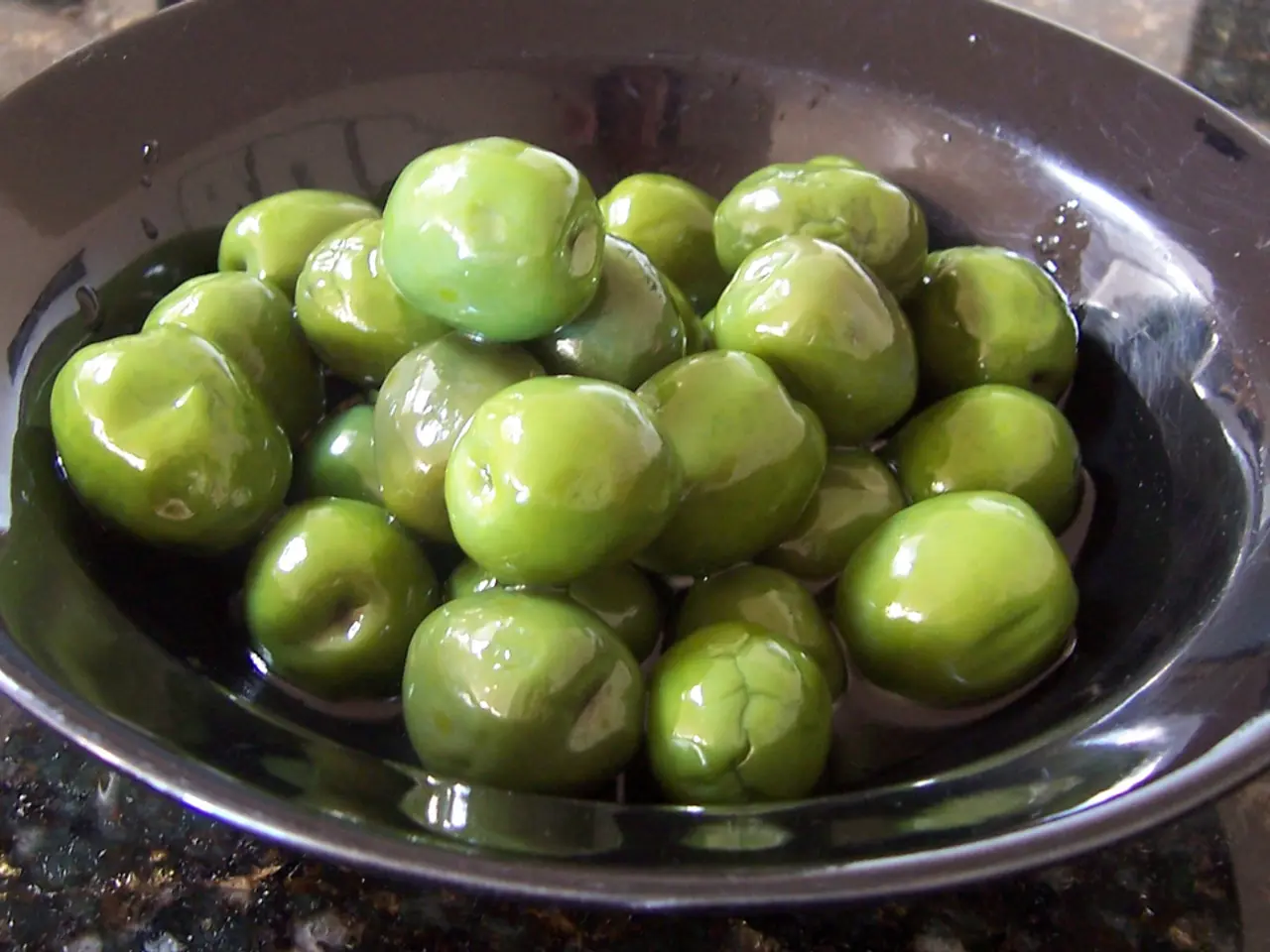Tuscan business offloads entire olive oil stock in the United States, faces disruption due to Trump's tariff impositions
The recent 15% tariffs imposed by the U.S. on European olive oil imports have caused a stir in the industry, affecting both large-scale producers and smaller startups alike. One such startup, Olio Piro, based in Tuscany, Italy, has been forced to rethink its export strategy due to these new tariffs.
Marie-Charlotte Piro, co-owner of Olio Piro, initially planned to lower prices this year. However, the tariffs have changed her plans, as she now considers waiting until January to decide how much olive oil she will ship to the United States and how much she'll send to new customers elsewhere, such as Canada, according to the level of the tariffs.
The U.S. is highly dependent on foreign olive oil, with domestic farmers and producers supplying only 5% of the olive oil Americans buy. Americans consume almost 400,000 tons of olive oil annually, more than any other country except Italy, and import approximately 95% of it. Companies like Deoleo, the owner of brands including Bertolli, rely heavily on the U.S. market and expect the tariffs to raise prices for U.S. consumers.
Randy Burt, a managing director for AlixPartners, predicts that Trump's new tariffs will likely result in higher prices for U.S. consumers. This prediction is already evident in the case of Greek olive oil exports to the U.S., which reached €76.3 million in 2024 but now face an obstacle in the form of the new 15% tariff.
Small startups like Olio Piro adapt to such tariff-driven market shifts by seeking diversification into new international markets less affected by tariffs, emphasizing premium quality and unique artisanal attributes to justify higher prices in the U.S. despite tariffs, exploring online direct-to-consumer sales channels to reduce distribution costs, innovating product lines or branding to target niche consumer segments willing to absorb additional costs, and possibly partnering with distributors in the U.S. to optimize supply chains and minimize tariff impact.
The White House has yet to provide much detail on its trade agreement with the European Union, causing uncertainty for Olio Piro and its entire industry. Despite this uncertainty, Olio Piro, which harvests olives only by hand and uses a modern type of milling technology, plans to invest 150,000 euros in its global expansion this year. The next olive harvest doesn't start until October, giving them more time for the details of the EU's trade deal to shake out.
Olio Piro found success in the United States, racking up sales, industry awards, and high-profile fans at Michelin-starred restaurants. However, the new tariffs have prompted them to expand elsewhere, with the Piro siblings moving up their plans to start exporting to other countries, including Canada, Japan, and Germany.
Sources: [1] The New York Times. (2025, March 1). U.S. Tariffs on European Olive Oil Raise Prices and Stir Concern. [2] The Wall Street Journal. (2025, February 20). U.S. Tariffs on European Olive Oil Take Effect. [3] Bloomberg. (2025, March 5). Greek Olive Oil Exports to the U.S. Face Tariff Obstacles. [4] Forbes. (2025, March 10). Small Olive Oil Producers Respond to U.S. Tariffs with Adaptive Strategies. [5] Reuters. (2025, February 25). U.S. Tariffs on European Olive Oil: An Overview.
- The tariffs have forced Olio Piro to reconsider its export strategy, considering the level of tariffs before shipping to the United States.
- The U.S. is heavily reliant on foreign olive oil and imports about 95% of it, with domestic producers supplying only 5%.
- Due to the tariffs, small startups like Olio Piro are exploring diversification into new international markets to mitigate their impact.
- Companies that rely heavily on the U.S. market, such as Deoleo, expect the tariffs to raise prices for American consumers.
- Olio Piro, which consists of hand-harvested olives and a modern milling technology, plans to invest in global expansion despite uncertainties surrounding the EU trade deal.
- With the new tariffs, Olio Piro is expanding to other countries like Canada, Japan, and Germany, moving up its export plans.
- Randy Burt, a managing director for AlixPartners, predicts that these tariffs will likely lead to higher prices for American consumers.
- In response to the tariffs, small olive oil producers are employing various strategies, including direct-to-consumer sales channels, product line innovations, and partnering with U.S. distributors to optimize supply chains.




